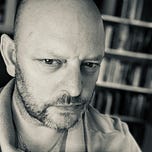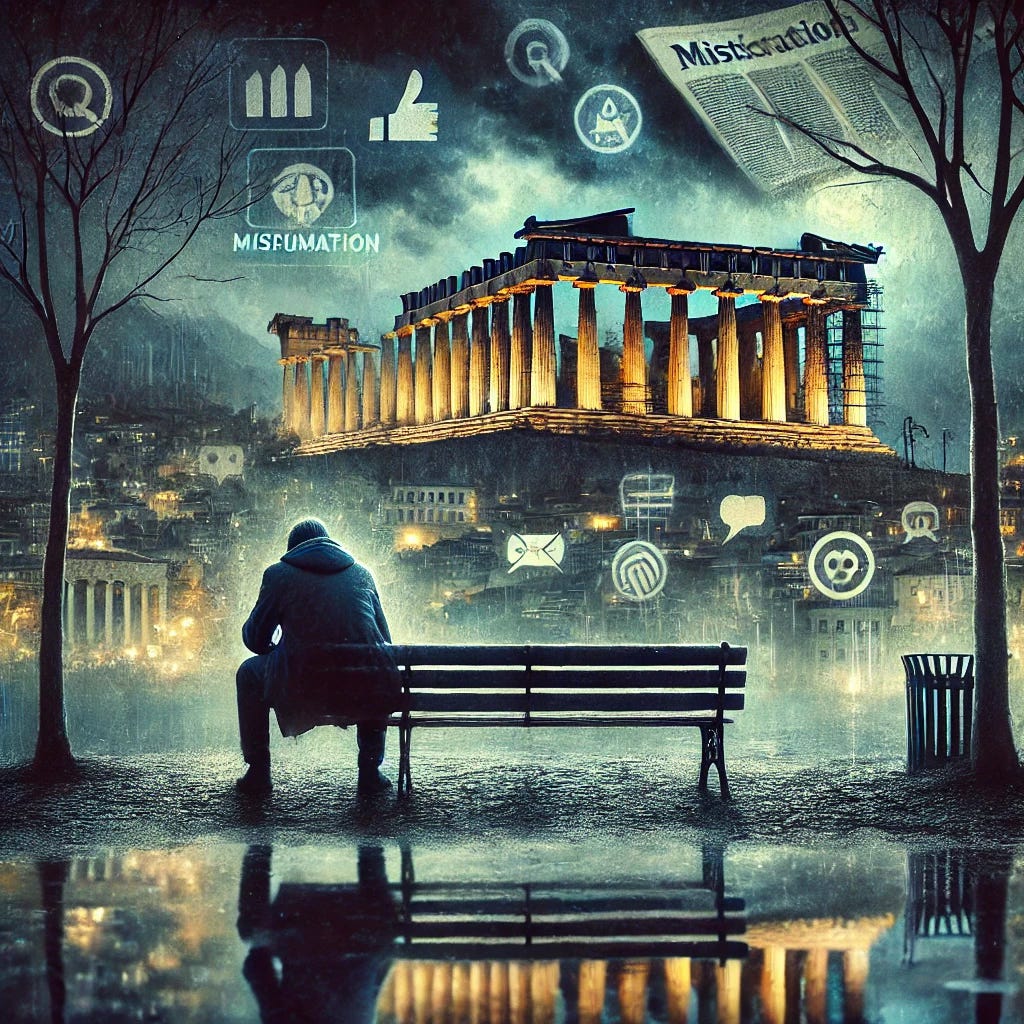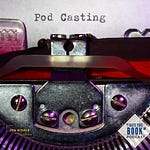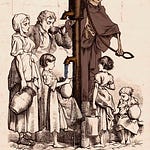Welcome back, everyone, to On The Edge with Jon Biddle here on Substack. Today, we're about to embark on a journey through history, literature, and some modern-day madness. So buckle up, because we’re diving deep into one of the most harrowing episodes of the ancient world—the Plague of Athens—before taking a sharp turn into the thorny thicket of misinformation and how it turned the COVID-19 pandemic into something even worse. And finally, I’ll wrap up with a personal update, diving into some of my own mental health challenges.
Let’s get into it.
Picture it: Athens, 430 BC. The city, locked in a brutal conflict with Sparta during the Peloponnesian War, was a bustling hub of culture and democracy. But as Sparta encircled the city to lay siege, the Athenians, confident behind their towering walls, faced an unseen enemy far more insidious—a deadly plague.
Thucydides, the Athenian historian and general, chronicled this nightmare in chilling detail. High fevers, violent spasms, and pustules covering the skin were just some of the symptoms he described. This wasn’t just a physical catastrophe; it tore apart the fabric of Athenian society. People abandoned the sick and dying, and traditional funeral rites were neglected. Thucydides paints a picture of a city unraveling, where the rules of civility and decency evaporated under the pressure of constant death and despair.
Now, fast forward to modern times. Over two millennia later, we faced our own version of societal unraveling during the COVID-19 pandemic. Just as in ancient Athens, misinformation played a significant role in exacerbating the crisis. Whether it was the Spanish Flu of 1918 or COVID-19, history shows us that bad information can be as deadly as the virus itself.
In both pandemics, misinformation led to public mistrust, hindered effective responses, and ultimately cost lives. During COVID-19, social media amplified this misinformation, spreading fear and confusion like wildfire. Governments and public health organizations struggled to keep up, often sending mixed messages that only deepened the crisis.
Reflecting on these past pandemics, it’s clear that misinformation feeds on fear and uncertainty, often leading to actions that worsen the crisis rather than resolve it. The challenge today, in an age where information is more accessible than ever, is ensuring that what’s being shared is accurate, trustworthy, and timely.
Switching gears, let’s talk about something more personal. As many of you know, I’ve been on the hunt for a literary agent—a journey filled with ups and downs, and a lot of waiting. It’s a bit like navigating a pandemic, but without the face masks and social distancing. I’m still here, in the trenches, querying and hoping that the right agent sees the potential in my work. It’s not an easy process, but like any challenge, you’ve got to keep pushing forward.
On a more serious note, I want to touch on mental health. One in four people in the UK will experience a mental health problem at some point in their life. This statistic represents real people, each with their own story. Children and young people are particularly vulnerable, with mental health disorders in children aged 5 to 16 rising sharply in recent years.
Eating disorders are another area of concern, especially binge eating disorder, which I was diagnosed with by clinical psychologists. This condition carries a lot of weight—literally and figuratively—and is something I’ll be exploring in depth in my Friday posts. It’s a chronically misunderstood disorder that deserves more attention and understanding.
Suicide rates have also increased over the last 20 years, with the highest rates among men aged 45 to 49 and women aged 50 to 54. These numbers highlight the severe, often silent struggles that many endure. Gender differences in mental health are stark, with women being twice as likely to experience anxiety disorders, while men are three times more likely to die by suicide.
Access to support remains a significant challenge. Many people go without the help they need due to barriers like stigma, lack of awareness, and accessibility issues. This is something I know all too well. Last year, I lost three friends to suicide, all of them ex-military. Earlier this year, I faced my own dark moment. But I’m still here, and the struggle is real and ongoing.
I have a great life—I’ve just celebrated my 34th wedding anniversary, surrounded by people who love and support me. But that inner voice, the one that’s always there, doesn’t just go away. My childhood was troubling, and only in adulthood have I come to understand how traumatic it was.
This Friday, I’ll share a post about how these realizations came to be. After receiving some devastating news last year, my heart was literally torn in two, and it took three surgeons to put it back together. I’ll go into detail about this and more in that post, along with an audio version if you prefer to listen.
From the ancient horrors of the Plague of Athens to the modern challenges of misinformation in a pandemic, we’ve covered a lot of ground today. It’s a lot to think about, but that’s what we do here—dig deep into the stories that shape our world and our understanding of it.
Thank you for being here. Don’t forget to subscribe, leave a comment, and share this post with anyone who might benefit from it.














Share this post